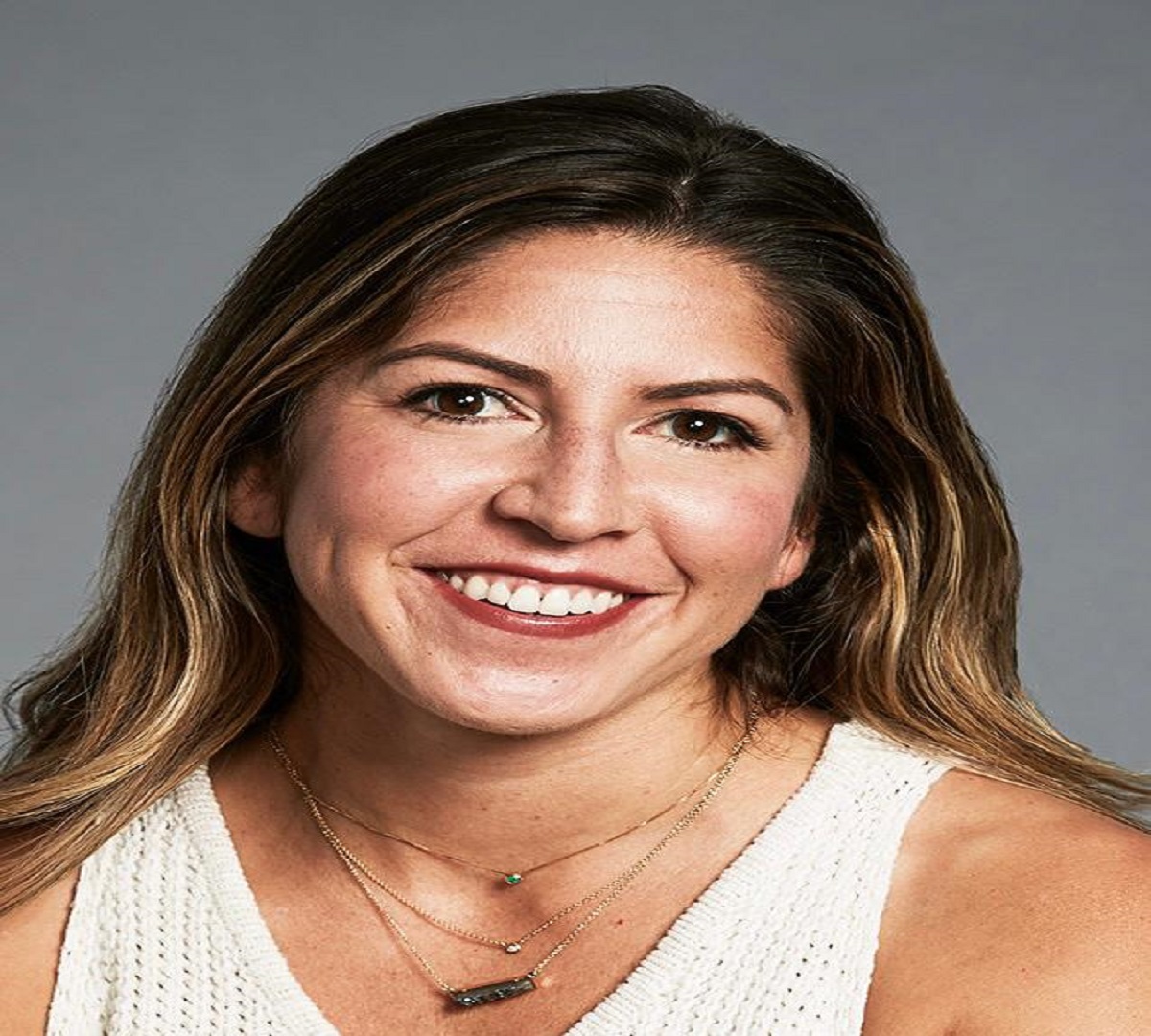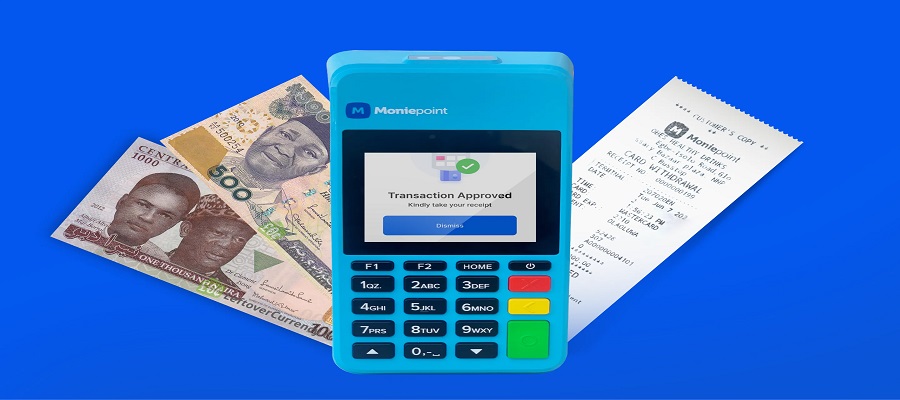Broadcasting
Thanks to Digital Marketing, Every Entrepreneur can go Global

The dream of every entrepreneur is to have a global customer base. After all, nothing shows you’ve made it like people all around the world buying your products or digital services. Until recently, getting to that point was reserved for a select few who manage to expand outward after saturating their home markets.

Today, thanks to ecommerce and digital marketing in particular, even entrepreneurs in niche fields can build a global customer base. Whether they’re building an online fashion empire or selling handcrafted designer decor, an entrepreneur in Accra or Lagos can compete on a global scale with their counterparts in Paris or New York.
To ensure that they have the best chance of doing so, however, it’s critical that they market themselves on the most relevant online platforms with the highest reach of potential consumers.
The growth potential of emerging markets
This growth opportunity is especially true for entrepreneurs targeting emerging markets with rapidly growing online populations. Nigeria, for example, is set to add 35 million new internet users by 2026, according to Statista. In Ghana, meanwhile, World Bank figures indicate that 58% of the population is online, with the number of internet users having grown more than six percent between 2020 and 2021.
Not only does this opportunity for growth exist from industry momentum, it also exists from demographic dynamics. Both of these markets have incredibly young populations. In Ghana, the median age is 21 and in Nigeria, it’s a shade over 18. As populations in the rest of the world age out, it’s to these often underserved markets that businesses around the world will look to for growth.
This young population is increasingly becoming tech-savvy and connected. They want and expect the same kinds of consumer experiences they see their counterparts in other parts of the globe having. This means that with the right messages on the right platforms, businesses can reach these consumers and make sales, no matter where they might be based.
But these young people are also looking to develop their digital skills so they can seek careers in the high-growth industries that promise economic advancement. In Nigeria, for example, the Digital Development Program Trust Fund estimates that 35% to 45% of jobs will require some level of digital skill.
These same young people are also entrepreneurial and have a growing pool of successful entrepreneurs from across the region and continents to draw inspiration from. Outside of the tech unicorns like Flutterwave, Jumia, and Wave there are local entrepreneurs in fields as diverse as fashion, healthcare, and decor who have proven that with more equal access to the digital marketing ecosystem, it’s possible to expand regionally and internationally, ultimately building businesses that thrive at a bigger scale and enrich the rest of the world through their products and services.
Building the right skills through access to digital media education
In order for that to happen at scale, they also need the requisite skills to market themselves online in whatever markets they want to reach. At the very least, those entrepreneurs should have easy access to people with those skills.
It’s important to note here, that these aren’t just fundamental digital marketing skills, but ones that relate to the specifics of marketing on the world’s leading digital advertising platforms such as Twitter, Snapchat, and Spotify where people across the globe spend most of their time online. With the right types of messages, these platforms are the most effective places to reach new customers across a broad range of markets.
This is something that we’re passionate about at Aleph Group and is the reason we launched our Digital Ad Expert programme, which aims to educate, certify and connect thousands of Africans with the digital skills needed to succeed in a rapidly digitising economy. While it’s entirely possible that someone with the right degree of determination and curiosity could develop those skills on their own, it’s critical that more and more resources are accessible to build them up at scale.
This is crucial to ensuring that markets such as Ghana and Nigeria aren’t just growth targets for international companies, but incubators for a new generation of entrepreneurs capable of competing on a global level themselves.
Turning small businesses into international players
Fortunately, there is a strong base of small businesses across the region with untapped potential. With the requisite skills, those businesses will be ready to take the next step and globalise their customer base.
In Nigeria, for example, SMEs contribute 48% of national GDP, account for 96% of businesses and 84% of employment. And in Ghana, it’s estimated that more than 90% of the country’s businesses are SMEs, employing 60% of the labour force and accounting for 70% of the country’s GDP. If even just a small fraction of those SMEs are able to build international customer bases they’ll unlock and drive economic growth in these growing countries, bringing momentum for the next wave of entrepreneurs.
Thanks to currently available digital marketing tools and increasing access to digital marketing skills, that’s entirely achievable too.
Broadcasting
DStv Loses 1.4m South African Subscribers in Two Years

DStv, owned by MultiChoice, has lost far more subscribers in South Africa in the last two years than it appears from its reporting, according to Moneyweb.

According to the group, its “active” subscriber base declined from eight million on 31 March 2023 to seven million on 31 March 2025.
The drop in subscribers accelerated from 400 000 in the prior year to 600 000 last year.
However, this is only the specific number of active customers on that date.
DStv is very aggressive in ensuring that customers are active at the end of March each year (and at the end of September) given its financial reporting.
It introduced a new metric in FY21 which measures customers who had an active subscription at any point within the 90 days before the reporting date.
On this measure, its base dropped from 9.3 million in March 2023 to 7.9 million in March 2025, equal to 1.4 million.
The declines are across the board in its premium, mid-market and mass market segment, but the first two are leading with drops of 22% to 23% each.
The premium segment includes the Premium and Compact Plus packages, while mid-market comprises its Compact and Commercial packages.
The mass market segment has seen an 11% decrease in subscribers over the last two years.
In its rest of Africa business, the decline on the 90-day active metric is even worse. Here, the number of subscribers has dropped from 14.2 million in March 2023 to 10.7 million in March 2025.
This is a 25% decline, or 3.5 million subscribers. In this business, the premium segment is flat over two years, mid-market is down 14% and mass market by 29%.
Its business in Nigeria continues to battle currency devaluation, with its share of subscription revenue across the African operations dropping from 44% in FY23 to just 26% in FY25.
In rand terms, subscription revenue in Nigeria is down from R9.1 billion two years ago to R3.5 billion now.
The group took a R2.8 billion foreign exchange hit in Nigeria, with the naira depreciating 44%.
This, coupled with other forex impacts, saw its R1.3 billion reported trading profit in Africa swing to a R800 million loss.
Somehow it tries to illustrate a R2.3 billion “organic” profit, before the currency impacts.
Price increases (averages of 5.6% in 2023 and 5.7% in 2024) were not enough to offset the subscriber declines.
Subscription revenue in South Africa has declined from R27.3 billion in FY23 to R25.7 billion in the year to end March 2025.
Not only is the macro-economic environment weighing on consumers, it also highlights the impact of “piracy, streaming options and social media”.
Broadcasting
How to Turbo-charge Your Productivity as a Backend Engineer!

By Seye Folajimi
I start each day with one goal: to be as efficient and focused as possible. A developer’s life is full of interruptions, and without good time management, it’s easy to fall behind. As a Backend Engineer at Moniepoint, I’ve assembled the toolkit that helps me and I believe by extension any technical professional to deliver results consistently.

In this feature article, I’ll share the tools and habits that have practically multiplied my productivity and sharpened my focus on the job.
My Daily Toolbox
I rely on a handful of core tools every day. IntelliJ IDEA and Visual Studio Code are my primary editors: IntelliJ for heavy backend work (it’s packed with features) and VS Code for quick edits or scripting. When testing APIs or debugging endpoints, Postman is indispensable for sending requests and saving environments. For spotting code or configuration differences, I often paste text into Diffchecker.com and let it highlight the changes. And for database work, MySQL Workbench provides a visual SQL editor and schema designer that saves me a ton of time. Dear professional, using the right tool for each task means fewer context switches and a smoother workflow.
Productivity Strategies That Power My Workflow
Beyond raw tools, I use structured habits to stay on track. I break the day into focused blocks and assign each chunk to an activity (coding, reviews, meetings, etc.). This time-blocking approach improves focus by letting me give my full attention to one task at a time. I also apply the Eisenhower Matrix to categorize tasks by urgency and importance; this ensures I tackle critical work first. Rather than flitting between emails, calls, and code, I batch similar tasks into dedicated slots. Some of my core techniques include:
Time Blocking: I assign specific blocks of time for coding, meetings, code reviews, and so on. This means I can dive deep into one task without switching contexts. (For example, I often use 25-minute sprints followed by a 5-minute break – the classic Pomodoro cycle – to keep my mind sharp.)
Prioritization (Eisenhower Matrix): Each morning I list my tasks and sort them by urgency vs importance. The Matrix helps me “do first” what truly matters and “delegate or drop” low-value items. This clarity prevents me from getting bogged down by busywork.
Automation: Whenever I catch myself doing something repetitive, I stop and ask, “Can I script this?” Whether it’s a shell script for routine commands or a CI/CD pipeline for deployment, automation frees up hours. Reducing manual repetition lets me focus on more critical work. Even simple automations (backups, report generation, test harnesses) add up to big time savings.
Notification Discipline: I turn off unnecessary notifications and check email/Slack only at scheduled times. By minimizing interruptions, I stay “in the zone” longer and preserve my cognitive energy.
Building My Custom Focus Extension: The Hot Gate
I even took matters into my own hands by coding a productivity tool from scratch, i called it “THE HOT GATE” .
The “Hot Gate” refers to the ancient Battle of Thermopylae in 480 BCE, a famous event in Greek history. It’s where King Leonidas of Sparta and a small force of Greeks (famously 300 Spartans) held off the vast Persian army of Xerxes I for several days.
The extension:
Blocks distracting websites during deep work sessions.
Organizes tabs to reduce clutter.
Unlocks distractions only during breaks.
I built it using JavaScript and browser APIs. One limitation: I can still turn it off manually. I’m considering adding a restriction to prevent that—but it’s still a local extension. Maybe someday I’ll publish it.
Breaks and Rewards
I’ve learned that smart breaks actually boost productivity. I take 2–4 minute strolls every hour, prompted by reminders from our infrastructure team. It’s refreshing and clears my head.
After big wins (like deploying a major feature or solving a tough bug), I reward myself—whether it’s a nice meal, a movie night, or just a chat with friends. These rewards keep me motivated and prevent burnout.
Wrapping Up
In my experience, combining the right tools with disciplined habits is what unlocks consistent high performance.
I’m constantly refining my setup—automating repetitive tasks, organizing my schedule better, and building systems that help me stay in the zone.
At Moniepoint and beyond, delivering quickly and reliably takes more than just code. It takes systems thinking, self-awareness, and the discipline to evolve your workflow over time.
By adopting these practices, I’ve become both more productive and more fulfilled. And I’m hoping the story is same or at least similar for you after reading this.
Seye Folajimi is a backend engineer with Africa’s fastest growing financial institution, Moniepoint Inc.
Broadcasting
African Craftsmanship Takes Center Stage at TALES 2025 in London

This summer, London’s West End will transform into a vibrant showcase of African excellence as TALES (The African Lifestyle Experience) returns with its most ambitious edition yet: Reimagine 2025.

A Luxury Cultural Experience
Hosted at Luxury Promise, 28 Cavendish Square, just off Oxford Street, the event will run from July 25 to August 3, 2025, offering ten days of curated experiences, fashion-forward storytelling, and cultural immersion.
With over 70 curated brands spanning fashion, beauty, art, music, and home décor, TALES 2025 will spotlight Africa’s brightest creative talents and celebrate craftsmanship across the diaspora.
Key Highlights
- Exclusive African Fashion & Craftsmanship Discover one-of-a-kind pieces, from bold fashion in traditional textiles like Aso Oke, Adinkra, and Bantu, to luxury handmade beauty products and bespoke interiors.
- Fireside Chats with Industry Icons Intimate conversations with trailblazers and tastemakers exploring the future of African entrepreneurship, culture, and design.
- Kidpreneur x The Veteran A standout feature returns, bridging generations of innovation by spotlighting rising Gen Z entrepreneurs alongside industry legends like Gloria Ije Anyaehie-Coker, founder of GIA1 Fashion.
- Exclusive Travel Offer with Air Peace TALES is partnering with Air Peace to offer a 15% flight base fare discount for brands and attendees flying to London, strengthening connections within the diaspora.
A Global Movement Powered by Bellafricana
Backed by Bellafricana, a platform empowering African creative entrepreneurs across 18+ countries, TALES champions authentic African stories, craftsmanship, and visibility on the world stage.
Supported by the City of Westminster
The City of Westminster proudly supports TALES 2025, reinforcing London’s commitment to diversity, innovation, and inclusive cultural celebration. The event will be featured across Oxford Street’s Instagram and website, ensuring maximum visibility.
Why It Matters
Following the runaway success of TALES 2024, which featured 40 brands and attracted a global audience, Reimagine 2025 raises the bar. As London’s fashion and cultural scene increasingly embraces diversity and authenticity, TALES 2025 is a timely and necessary celebration of African brilliance.
Whether you’re a fashion enthusiast, culture lover, or global tastemaker, TALES 2025 is where Africa’s future-forward creativity meets London’s cultural heartbeat.
Event Details
Venue: Luxury Promise, The Corner Showroom, 28 Cavendish Square, London W1G 0DB 


 News3 days ago
News3 days agoLasaco Assurance to Invest in Technologies, Systems to Deliver Value to Clients

 E-Financial3 days ago
E-Financial3 days agoNIBSS National Payment Stack to Transform Nigerian Instant Payments

 Telecom22 hours ago
Telecom22 hours agoOver 1m Nigerians Reached through MTN Staff’s Digital and Community Outreach

 Telecom22 hours ago
Telecom22 hours agoMafab Gets 0724 Number Series, Launches Mcom 5G Brand

 General News22 hours ago
General News22 hours agoNASRDA, Galaxy Space Firm Sign MoU on Satellite Connectivity

 General News3 days ago
General News3 days agoMoniepoint Demonstrates Commitment to Nurturing Africa’s Future Leaders

 E-Financial3 days ago
E-Financial3 days agoCBN Reaffirms Banking Sector Resilience as Forbearance Ends

 News2 days ago
News2 days agoHow and Why N210 Trillion is Missing in NNPCL – CFO
























